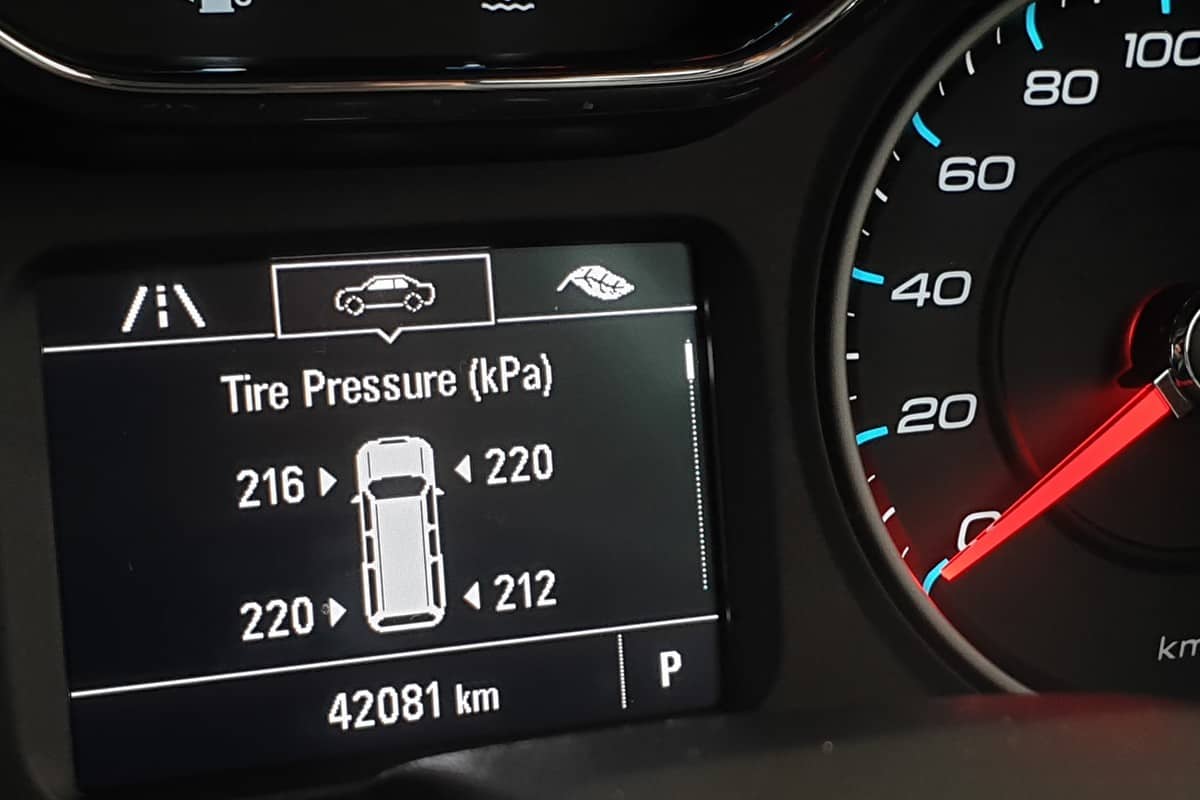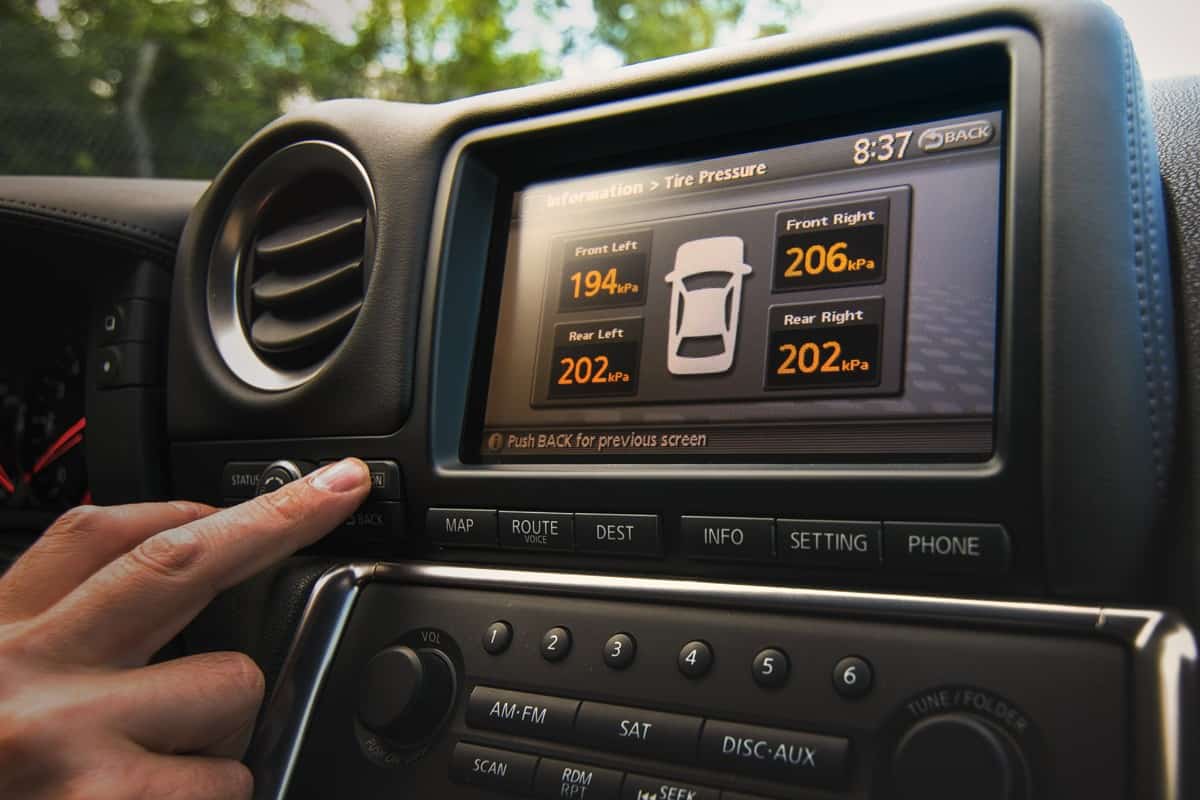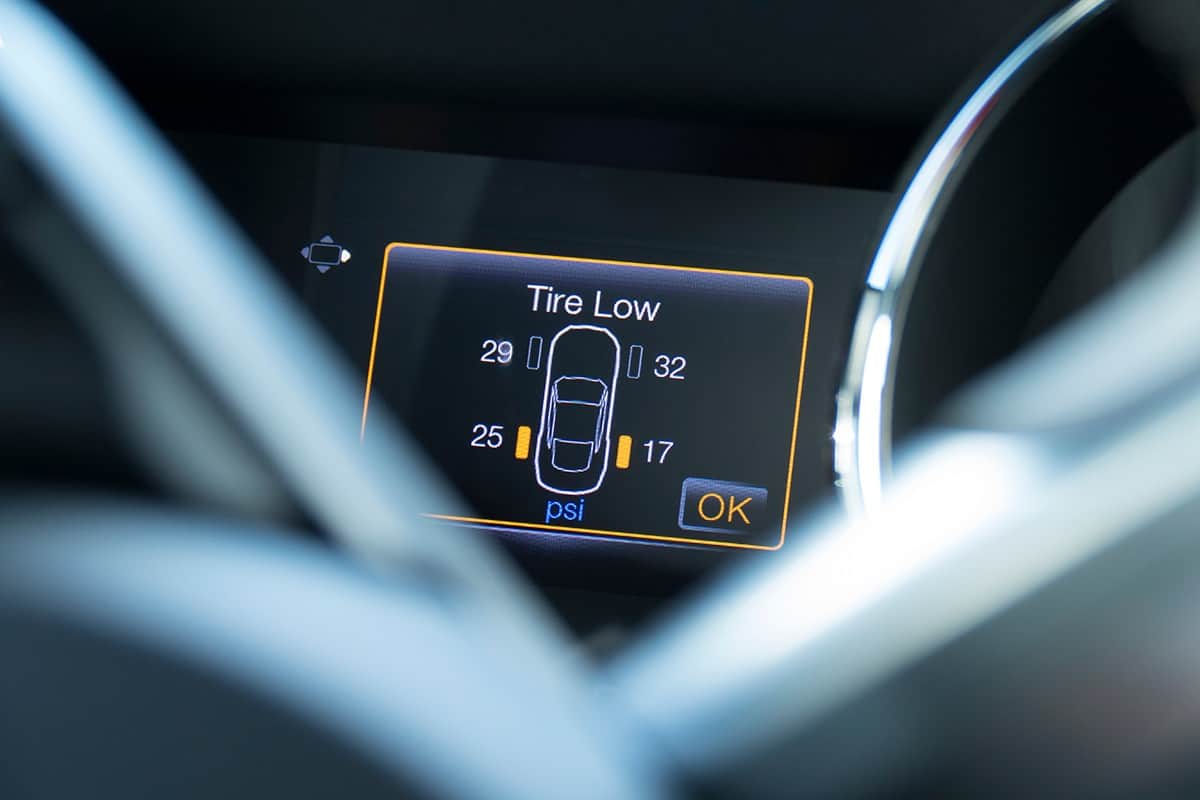Most Mercedes vehicles have a tire pressure monitoring system (TPMS) that monitors the air pressure in each tire via sensors. This system is designed to provide real-time information about the tire pressure when it drops below a certain level. But what should you do when you get a notification that says "tire pressure sensor missing"? We've researched this question and have an answer for you.
If your Mercedes displays a warning that says "tire pressure sensor missing," it means that the tire pressure monitoring system (TPMS) is not able to detect one or more of the sensors that are installed in the tires and they will need replacement.
If the pressure in any of the tires drops below the recommended level, a warning light will appear on the dashboard. Continue reading to learn more about why your Mercedes is displaying a TPMS warning and what you can do about it.

Understanding The "Tire Pressure Sensor Missing" Warning
The TPMS system in Mercedes vehicles is designed to help drivers stay aware of their tire pressure and maintain their vehicle's performance and safety. This can be useful for drivers who want to keep a close eye on their tire pressure.

When your Mercedes displays a message saying "Tire Pressure Sensor Missing," one of the reasons could be that the sensors are faulty. You will have to replace your faulty sensors with new ones.
Sensor failure
If a sensor has failed, it will not be able to send a signal to the TPMS control module, and the system will not be able to detect the pressure in that tire, which can cause the sensors to be identified as missing.
Battery issue
Some types of sensors are powered by batteries, which can eventually fail. If a sensor battery has died, it will need to be replaced to restore the functionality of the TPMS system.
Damaged or defective sensor
TPMS sensors are located inside the tires and are exposed to various elements such as water, road debris, and heat. If a sensor is damaged or defective, it may not be able to send a signal to the TPMS control module.
This can also happen if the sensor is hit or damaged during a tire change or if the tire is punctured. A defective, damaged sensor should be replaced.
Sensor incorrectly installed
If a tire is fitted with the wrong sensor or if a sensor is not installed properly, the TPMS system will not be able to detect it.
How To Check A Faulty TPMS

Fixing a faulty TPMS sensor on your Mercedes typically requires replacing the sensor itself. Here are some troubleshooting steps you can try if you think your Mercedes TPMS is malfunctioning.
Note that it is best to take your Mercedes to a qualified technician to have the faulty TPMS checked for diagnosis and repair.
Check tire pressure
Make sure that all of your tires are properly inflated according to the manufacturer's recommendations. If any of the tires are low on pressure, this could trigger a TPMS warning light.
Check for damage
Visually inspect each tire and sensor for any signs of physical damage or corrosion. This can include cracks, bulges, or rust.
Check sensor battery
TPMS sensors have batteries that can run out over time. Check the battery level of each sensor with a TPMS tool to make sure that they are still functional.
Check receiver
The TPMS receiver is responsible for receiving signals from the sensors. If the receiver is not working properly, it can cause TPMS warning lights to appear.
How To Reset Your TPMS
It is important to note that the specific steps to reset your Mercedes TPMS may vary depending on the model and year of your vehicle. Always consult your owner's manual for specific instructions and follow them carefully to avoid causing any damage to your vehicle.
A TPMS warning can appear due to a glitch in the system. Try resetting the TPMS system by following the instructions in your Mercedes manual.
- You will need to confirm that your tires are properly inflated according to the manufacturer's recommendations.
- Drive your vehicle at the speed of 50 mph after resetting the TPMS for at least 10 minutes. This will allow the TPMS to recalibrate and detect any changes in tire pressure.
- Turn the ignition key to the "on" position, but do not start the engine.
- Navigate to the TPMS reset menu. The location of this menu can vary depending on the model of your Mercedes. It is best to consult your owner's manual for specific instructions.
- Once you have located the TPMS reset menu, select "reset" to clear any warning lights or error messages.
Is It OK To Drive Without A Functioning TPMS?
It is not recommended to drive without a TPMS. The TPMS alerts the driver when the pressure in one or more tires is too low.
Driving with faulty tires can be dangerous. It may result in to increase risk of a tire blowout, decrease fuel efficiency, and increase tire wear.
Furthermore, it may be illegal in some regions to drive a vehicle without a functioning TPMS. To ensure the safe operation of your vehicle, you should replace or repair a faulty TPMS sensor as soon as possible.
How Does TPMS Affect The Performance Of Your Vehicle?

The TPMS can help to maintain proper tire pressure and protect against tire wear. This can also result in improved vehicle performance and safety.
Here are some of the ways in how the TPMS affects the performance of your vehicle:
Fuel economy
Proper tire pressure can improve fuel economy, and the TPMS helps to maintain the proper tire pressure. Driving with bad tires can cause the engine to work harder to maintain speed. Therefore, maintaining the correct tire pressure through the TPMS sensors can aid in optimizing fuel efficiency.
Stability
Deflated tires can negatively impact your vehicle's stability. When tire pressure is too low, the tire becomes less stable.
This can cause the vehicle to feel less responsive when steering and increase the risk of a tire blowout.
Tire wear
Overinflated or underinflated tires can cause uneven tire wear, which can result in premature tire failure. The TPMS helps to maintain the proper tire pressure, which can extend the life of the tires and save you money on tire replacement costs.
Are All TPMS Sensors The Same?
All sensors are not the same and do not work in the same way. They can vary in terms of their design, technology, and compatibility with different vehicles.
There are two types of TPMS sensors: direct and indirect. Each serves a different function.
Direct TPMS
Direct TPMS sensors are installed inside each tire and use a pressure sensor to measure the air pressure and transmit the data wirelessly to the vehicle's onboard computer.
It also provides real-time information on the tire pressure and can accurately detect if a tire has low pressure. The direct TPMS requires a battery in each sensor and can be more expensive to replace.
Indirect TPMS
Indirect TPMS sensors, on the other hand, use the vehicle's existing ABS (Anti-lock Braking System) sensors to detect changes in tire pressure and provide a warning if pressure drops below a certain level.
It doesn't require any additional sensors, and it's a more affordable option. However, it may not be as accurate as the direct TPMS.
How Much Does It Cost To Replace TPMS Sensor?

The cost of replacing a TPMS sensor can vary depending on several factors, such as the model of the vehicle and the type of TPMS sensor required. As we mentioned, TPMS sensors are not universal and vehicles are equipped with different types of TPMS sensors.
A Mercedes-Benz tire pressure sensor replacement will typically cost at least $199, depending on the specific model. You should expect additional labor charges. Prices can vary depending on where you live and the model of the vehicle.
Our Final Thoughts
One of the causes of the "Tire Pressure Sensor Missing" message that appears on your Mercedes display could be faulty sensors. You should have your car checked by a qualified technician to ensure the proper functioning of your TPMS.
We hope that this article has provided you with the information that you need! Want to read more? Check out these related articles!





